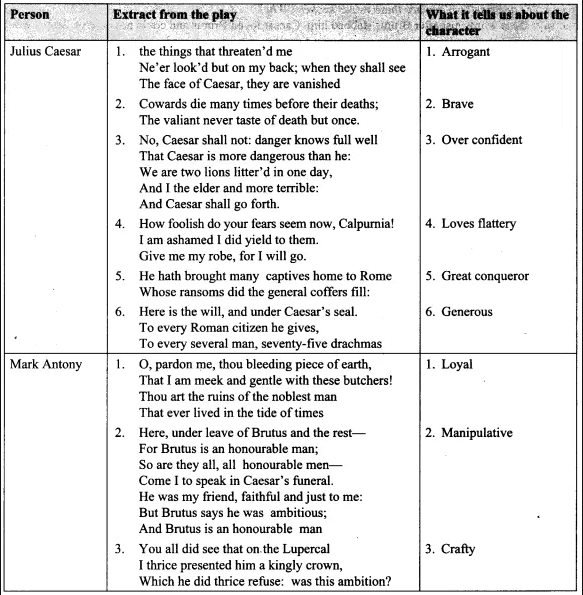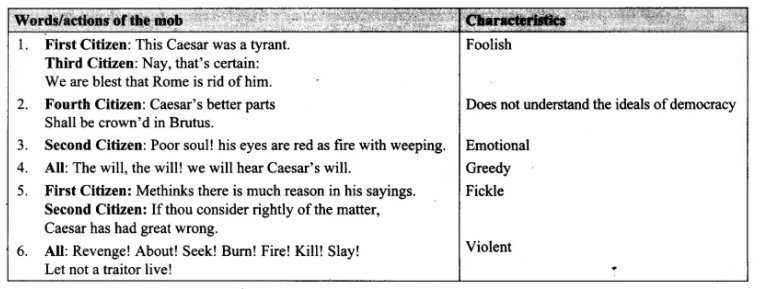We have decided to create the most comprehensive English Summary that will help students with learning and understanding.
Keeping it from Harold Summary in English by P.G. Wodehouse
Keeping it from Harold Summary in English
Mr Bramble is a famous boxer, popular by the name of ‘Porky’, with a large fan following. But, despite his successful boxing career, he is keen to give it all up because of his son Harold. Harold, a ten-year- old schoolboy, is unaware of his father’s profession and has been told that he is a commercial traveller. Harold is a constant source of amazement to his parents because of his excellence in studies and his impeccable manners. His mother, Mrs Bramble is convinced that he is a child prodigy. They fear that such a superior human being might not approve of his father’s profession.
Encouraged by his brother-in-law (Mrs Bramble’s brother), Major Percy Stokes, Mr Bramble decides to give up his boxing career and look for a job as a boxing instructor in a school or college. Unfortunately, the decision is taken days before a major boxing event where he stands to win a lot of money and fame. His wife does not appear too happy at this decision as she feels the money he would have won would have helped in their son’s education. Before the discussion can go any further, Mr Fisher, the trainer and promoter of Mr Bramble’s fight, arrives. He is horrified at Mr Bramble’s decision to give up boxing at such a time and does all he can to make him change his mind. In the middle of all this chaos enters Harold wanting to know why there was so much fighting in the house.
Much to the surprise of his parents he is extremely excited to know that his father is the famous boxing champion ‘Porky’ and surprises everyone with his in-depth knowledge of the boxing world and the fact that he has bet some money on ‘Porky’s’ win. Hence, matters end peacefully, with Mr Fisher taking Mr Bramble to train for the ‘big fight’ and Harold asking his mother to help him with his studies.
The story is written in the typical humorous, ironical style that came so naturally to P.G. Wodehouse.
Keeping it from Harold Summary Questions and Answers
Question 1.
Based on your reading of the story, answer the following questions by choosing the correct option.
a. Mrs Bramble was a proud woman because:
(i) she was the wife of a famous boxer.
(ii) she had motivated her husband.
(iii) she was a good housewife
(iv) she was the mother of a child prodigy.
Answer:
She was the mother of a child prodigy.
b. ‘The very naming of Harold had caused a sacrifice on his part ’ The writer’s tone here is:
(i) admiring
(ii) assertive
(iii) satirical
(iv) gentle
Answer:
Satirical.
c. Harold had defied the laws of heredity by:
(i) becoming a sportsperson.
(ii) being good at academics.
(iii) being well-built and muscular
(iv) respecting his parents
Answer:
Being good at academics.
d. Harold felt that he was deprived of the respect that his classmates would give him as:
(i) they did not know his father was the famous boxer, ‘Young Porky’.
(ii) his hero, Jimmy Murphy had not won the wrestling match.
(iii) he had not got Phil Scott’s autograph.
(iv) Sid Simpson had lost the Lonsdale belt.
Answer:
They did not know his father was the famous boxer, ‘Young Porky’.
Question 2.
Answer the following questions.
a. What was strange about the manner in which Mrs Bramble addressed her son? What did he feel about it?
Answer:
Mrs Bramble addressed her son in the third person and it jarred upon him as he felt she was addressing him the way one addresses a baby. He felt offended especially as he felt all grown up since he had won a prize for dictation and spelling.
b. Why was it necessary to keep Harold’s father’s profession a secret from him?
Answer:
Harold was studying in an expensive private school and was growing up to be quite a don. He was very intelligent and interested in studies. He amazed his parents with his courteous behaviour. Therefore, they felt that he might be embarrassed if he came to know that his father was a boxing champion and belonged to the rough world of boxing.
c. When Mr Bramble came to know that he was going to be a father what were some of the names he decided upon? Why?
Answer:
Mr Bramble had wanted to call the child John if he was a boy, after the American boxing legend John L Sullivan, and Marie if she were a girl, after Marie Lloyd, the music hall artist. He probably decided upon these names because they were famous and belonged to his world of entertainment and sports.
d. Describe Mr Bramble as he has been described in the story.
Answer:
Mr Bramble was one of the mildest and most obliging of men in private life and always yielded to everybody. Nobody could help but like this excellent man.
e. Why was Mrs Bramble upset when she heard that Bill had decided not to fight?
Answer:
Mrs Bramble was upset because the money that Bill would have made after the boxing match would have helped to provide for the expenses of their son’s education.
f. Who was Jerry Fisher? What did he say to try and convince Bill to change his mind?
Answer:
Jerry Fisher was the trainer, manager, and promoter of Mr Bramble’s boxing matches.
He tried to tempt Mr Bramble by reminding him of the large sum of money that he would win at the end of the fight, the celebrities who would come to watch him fight and the publicity he would get. He also tried to point out the problems that he would have to face if he decided not to fight.
g. How did Harold come to know that his father was a boxer?
Answer:
When Harold returned from a walk, finding the door of his house open, he walked into a room full of adults discussing about him. Seizing the opportunity, Mr Fisher told him that his father was the famous boxing champion, popularly called ‘Young Porky’.
h. Why was Harold upset that his father had not told him about his true identity? Give two reasons.
Answer:
Harold was upset that he had been denied the chance to show off before his friends that his father was the famous boxing champion ‘Young Porky’. He also felt that if his friends had known of his father’s true identity, they would have treated him with more respect and not called him ‘Goggles’.
i. Do you agree with Harold’s parents ’ decision of hiding from him that his father was a boxer? Why? Why not?
(Encourage the students to think creatively andformulate their own answers.)
Answer:
Yes, they did the right thing by hiding the fact from Harold because they did not know how he would react. They felt they were saving him from embarrassment .They did not want him to feel inferior to the other boys in his class, especially as most of them came from the upper strata of society and may have looked down upon him once they came to know of it.
No, it was foolish on their part to hide things from him because by doing so they were living under false pretenses • and this would have had painful consequences in the future. Also, they were being overprotective, deciding what their son should or should not be told. They were turning him into a snob by hiding his true background from him.
Question 3.
The sequence of events has been jumbled up. Rearrange them and complete the given flowchart.
Answer:
a. Harold is alone with his mother in their home.
b. Mrs. Bramble is amazed to think that she has brought such a prodigy as Harold into the world.
c. Mrs. Bramble resumes work of darning the sock.
d. Major Percy and Bill come to the house.
e. Mrs. Bramble is informed that Bill had decided not to fight.
f. Bill tells his wife that he is doing it for Harold.
g. Jerry Fisher tries to convince Bill to reconsider.
h. Harold comes to know that his father is a boxer.
i. Harold wants to know what will happen to the money he had bet on Murphy losing.
Question 4.
Choose extracts from the story that illustrate the characters of these people in it.
Answer:
| Person | Extracts from the story | What this tells us about their characters |
| Mrs Bramble | (Para 12) ‘Bill we must keep it from Harold’ | She was not honest and open with her son; concerned mother |
| Mr Bramble | (Para 33) ‘The scales have fallen from his eyes.’ | He is easily influenced or coerced |
| Percy | (Para 109) ‘My dear sir.’ There was a crooning winningness in Percy’s voice.’ | He is persuasive and a smooth talker |
| Jerry Fisher | (Para 110) ‘Tommy,’ said Mr. Fisher, ignoring them all, ‘you think your pa’s a commercial. He ain’t. He’s a fighting man, doing his eight-stone-four ringside, and known to all the heads as “Young Porky.’” | He is vengeful and does not think before speaking. He is also inconsiderate of the wishes of others |


